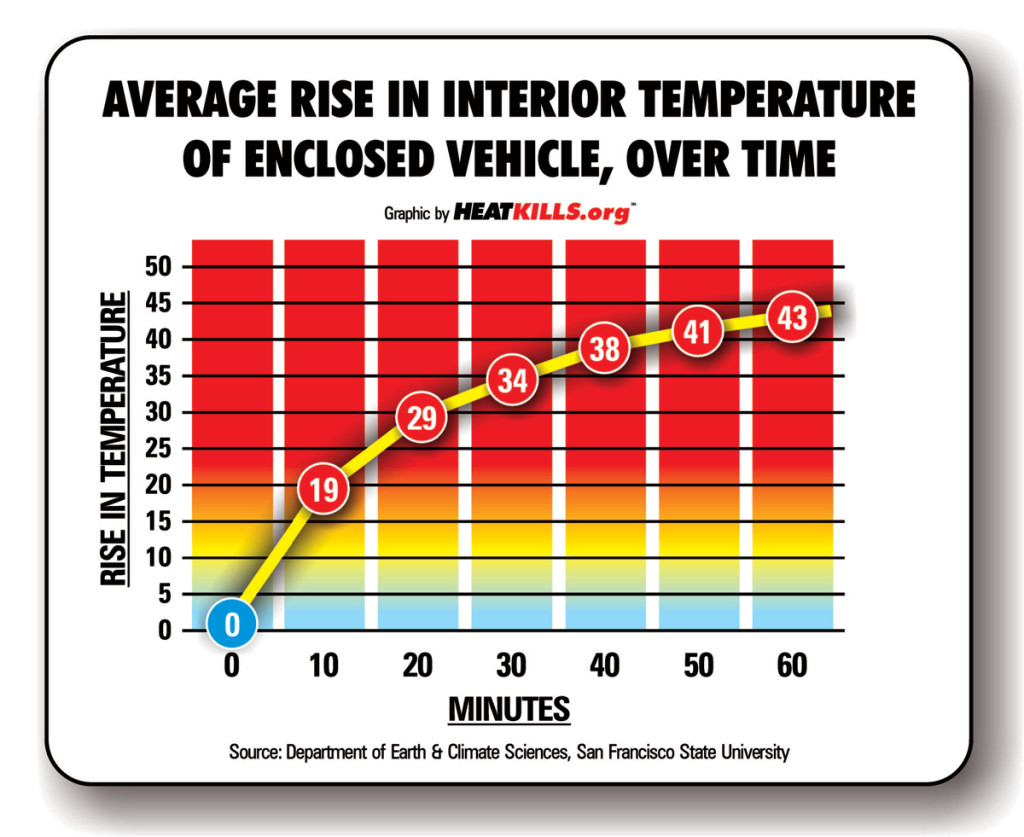More than half of Americans have a pet, and those of us who do are often almost as concerned with their well being as we are with our own. Because of that, there are 4 things you should NEVER do with your pet (although this refers more to dogs than anything else) in the summer and 2 things you SHOULD do to help prevent heat stress.
Sixty-eight percent of households in the United States, or about 85 million families, own a pet, according to the 2017-2018 National Pet Owners Survey conducted by the American Pet Products Association (APPA). We all know the joy that can come from pet ownership. Even cat owners are blissfully aware of just how calming and relaxing it is to have a ball of fur curled up on your lap and purring. But wanting to spend time with our furry friends in the summer often causes us to unknowingly put our pet in a possibly dangerous situation. While it’s understood that most of the 4 things on the “do not do” list are common sense, it never hurts to have a reminder!
- Never Leave a Pet in a Car
This one is pretty obvious, but considering 37 kids a year die of heatstroke because their parents leave them in cars, it seems likely they do it to their dogs too. It doesn’t matter if you’ll “only be in the grocery store for a minute” or are just running into the bank. Never leave your dog (or your kid) in your car. Even with the window cracked, the car can heat up very quickly and if you happen to run into a long line at the grocery store, your dog is suffering stuck in your vehicle. See the chart below for just how quickly the temperature rises in a car. A cracked window may not be enough!

Unless you live in a cooler climate your dog is going to be overwhelmingly hot in your vehicle. Think about his safety and health and just leave him at home if it’s sweltering.
That brings us to our next point:
2. Never Leave Without Checking Your Pet’s Water Level
Make sure your dog has an adequate supply of clean water. If you’re leaving him outside, you should consider putting the water in a spot that is often shady to keep it cooler for longer. Just like people, when it’s hot, dogs need more water to stay hydrated. If you have more than one dog, or a cat will be sharing the water, consider a bigger bowl than you think you’ll need or even better, get a second bowl altogether. Dogs can get to playing and accidentally knock over their dish and leave themselves without water. To prevent this, we use a 5-gallon bucket. It’s too heavy to tip over when the two dogs are messing around, and it holds more than enough ice-cold well water to keep them hydrated for a few hours. Here is an actual image of exactly how we ensure our two dogs and three cats always have an adequate water supply:
*NOTE: The bucket’s handle is over the well tap so the dogs cannot knock it over and it’s always filled to the top with water. Also, the bucket is in the shade for most of the day thanks to the proximity to the covered porch and the bushes. This may not be possible for you in your situation, but it’s what we have found works very well. The cats can access this easily too!

3. NEVER Leave Pets Outside Without Shade
Take a quick note of your yard and make sure your dog has adequate shade. If you don’t have trees or the shade from your house doesn’t cover your yard, you may need to get some kind of temporary easy to set up canopy that will create a large patch of shade to keep your dog cool and out of the direct sun. Just give them some reprieve from the heat!
4.NEVER Walk Your Dog On Hot Pavement
Make sure you avoid walking your dog on the pavement on hot days. Not only can the easily become overheated with the exercise, but the hot pavement can also burn their feet! Take walks in the cooler part of the day to avoid this, such as in the early morning and evening. And try to carry enough water for both of you! If the sun has been on the pavement for even a few hours, make sure you check it to ensure it won’t burn your dog’s feet. If it’s too hot for your hand, it’s too hot for your dog’s paw pads. Walk on the grass and stay off the asphalt. You also might want to try booties for your dog so his paws don’t burn, but my dogs refuse to wear these. So keep that in mind!
There are 2 things you should do with your dog in summer though!
1. Make Your Pet Ice Treats
To help cool your dog off, you can make some simple ice treats that will also keep him happy! This recipe from Wide Open Pets is a great one to try!
This frozen dog treat is perfect for those pet owners whose culinary skills may be lacking. It’s only four ingredients and all you need is a pan and a freezer.
Ingredients:
- Water
- 1/2 cup peanut butter
- 1 cup chopped fruit
- 2 tablespoons flax seeds
Directions
- Combine peanut butter and water and pour into a bundt pan (or any other kind of pan).
- Add the fruit and flax seeds.
- Put in the freezer and leave it there for four to six hours.
Finally, take it out of the freezer and watch with satisfaction as your pup goes to town on your tasty creation.
2. Know The Signs of Heat Stroke In Dogs and Cats
Cats and dogs cannot respond to heat in the same way that we humans do. Because they can’t cool off as easily as humans, it is important to recognize the signs of heat stroke in your pets. Heatstroke, also known as heat stress, is a state of hyperthermia (elevated core body temperature above the normal range) resulting in heat injury to bodily tissues. Heat stroke is a life-threatening condition and will require immediate action if you suspect your pet has succumbed to it.
The most common symptoms of heat stroke in a dog or cat are:
- Panting which increases as heatstroke progresses
- Drooling, salivating
- Agitation, restlessness
- Very red or pale gums
- Bright red tongue
- Increased heart rate
- Breathing distress
- Delirium or confusion
- Dizziness, staggering
- Lethargy, weakness
- Muscle tremors
- Seizures
- Collapsing and lying down
- Little to no urine production
- Coma
If you think your dog or cat has heat stroke, immediately take action to prevent serious life-threatening conditions. Remove your pet from the hot environment immediately and apply or spray tepid/cool water onto the animal’s fur and skin. Then apply a fan/fanning to maximize heat loss. Don’t use ice-cold water or ice as this may worsen the problem! Wet the area around your pet too. Putting them on a wet dog bed may help. Call your veterinarian and make plans to take your pet to them immediately. Ask them for the best way to keep your furry friend cool in the drive over.
Hopefully, these helpful tricks will help us remember that there are things we can do to make the summer a more comfortable season for our beloved animals.


I’m not sure when pets became as important as people. Also not sure when a clear line became defined between pets and livestock. Rabbits suffer more in the heat than dogs. All animals need water and shade. They don’t need ice cold water and specialized treats. I have Siberian Huskies and Timber wolves and live in Florida. The only thing I do differently in the summer is, I leave kiddie pools around my property for them to dip their feet in when they over heat. They sweat through their pads so, allowing them to cool their pads is all they need. I spend more time filling water holes for my pigs (pigs do not have sweat glands) and switching my plant misters to my rabbits than ever worrying about my pets.
I’m not sure when people lost their humanity. Why would anyone feel the need to differentiate between people, pets or livestock?? All living things are important and if you see an any of God’s creatures in need, I would hope you act as though you will be held accountable for your deeds or lack thereof…because you will.
If you take on the responsibility of any life, it is YOUR DUTY to provide for them the best you can. They look to you for their health, comfort, safety and happiness. Just be a good person.
Our Border Collie places his front paws in water buckets often…he doesn’t care how many chickens are around him ???? We have a mister water system up for our rabbits, as well as placing frozen water jugs in with them when it’s hot.
Good information. I see too many people who believe that their animals will “take care of themselves”. They forget that THEY are responsible for providing healthy living conditions for them. It’s not hard to provide a raised dog house, shade and cool water, but yet as humans, we have to put ourselves in the animal’s place which some of us do and some are clueless.